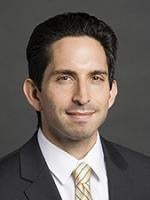On May 10, 2021, in SEC v. Morrone,1 a panel of the U.S. Court of Appeals for the First Circuit held that the federal securities laws apply to securities transactions as long as “irrevocable liability”—the point at which parties become legally bound to carry out the transaction—occurs in the United States. The Court thus joined the Ninth Circuit in rejecting the Second Circuit’s more defendant-friendly approach to extraterritoriality, under which a defendant may avoid liability by showing that the claims “are so predominantly foreign as to be impermissibly extraterritorial.”2 Until the Supreme Court resolves this circuit split, plaintiffs asserting securities claims involving foreign transactions likely will steer clear of the Second Circuit, opting for circuits that have rejected such fact-intensive defenses.
Background
This case involved BioDefense Corporation, a company formed after the infamous anthrax attacks of the early 2000s to develop and sell a machine to clean and decontaminate mail. In 2008, a consultant (who had previously been convicted of conspiracy to commit securities fraud) introduced BioDefense to Agile Consulting, a consulting firm that operated call centers out of Europe. Agile touted its ability to raise money from foreign investors while charging a 75% fee on any funds actually raised. Despite the exorbitant fee, BioDefense retained Agile to solicit investors using documents provided by BioDefense senior officers that did not disclose the fee. Upon identifying interested investors, Agile would send their contact information to senior BioDefense officers located in Boston, Massachusetts, who in turn would handle finalizing investor subscription agreements and issuing BioDefense stock certificates. Between August 2008 and February 2009, BioDefense raised $3.3 million, while paying Agile $2.5 million.
In 2012, the SEC sued BioDefense and its senior officers in the District of Massachusetts, asserting various claims under the federal securities laws, including securities fraud under Section 17(a) of the Securities Act of 1933, Section 10(b) of the Securities Exchange Act of 1934, and Rule 10b-5 thereunder. On September 6, 2019, the district court granted summary judgment in favor of the SEC on certain of its claims. In so doing, the district court rejected the defendants’ argument that the securities laws did not apply to their activities targeting foreign investors, finding that the transactions qualified as “domestic” under the Supreme Court’s 2010 decision in Morrison v. National Australia Bank Ltd.3 because BioDefense “incurred irrevocable liability within the United States.”4 The defendants appealed to the First Circuit.
The First Circuit’s Decision
A panel of the First Circuit affirmed, holding that the district court correctly applied the federal securities laws to defendants’ conduct targeting international investors. The Court explained that, under Morrison, the federal securities laws apply to only two types of transactions: (1) “transactions in securities listed on domestic exchanges” and (2) “domestic transactions in other securities.”5 The Court further held that a transaction qualifies as “domestic” if “irrevocable liability”—i.e. when a purchaser becomes bound “to take and pay for a security” or a seller “to deliver a security”—occurs in the United States.6 The Court found the test satisfied because BioDefense officers executed and finalized the subscription agreements in Boston and then issued shares from Boston to the foreign investors.
In arguing that Morrison required a contrary ruling, the defendants invoked the Second Circuit’s 2014 decision in Parkcentral Global Hub Ltd. v. Porsche Automobile Holdings SE.7 There, the Second Circuit held that irrevocable liability in the United States is “not alone sufficient to state a properly domestic claim under the statute.”8 Rather, even where irrevocable liability occurs in the United States, the securities laws do not apply where “the claims . . . are so predominantly foreign as to be impermissibly extraterritorial.”9 According to defendants, the transactions here fell within the Parkcentral carve-out because they were “foreign transactions involving foreign investors solicited by foreign brokerage firms.”10 The Court, however, rejected the argument, explaining that Parkcentral is “inconsistent with Morrison” because, in Morrison, the Supreme Court “explicitly said that, if a transaction is domestic, § 10(b) applies.”11 Thus, once a “domestic” securities transaction is identified (in other words, because irrevocable liability occurs in the United States), the securities laws apply; “no further inquiry is required.”12 In the alternative, the Court explained that, even if the Parkcentral test were valid, the defendants’ U.S. presence and activity defeated any notion that the transactions were “so predominantly foreign as to be impermissibly extraterritorial.”13
Implications
The First Circuit’s decision further entrenches a split among the circuits as to the scope of Morrison’s “domestic transaction” test. The First Circuit joins the Ninth Circuit in holding that “irrevocable liability” in the United States is all that is needed for the federal securities laws to apply to foreign transactions. In the Second Circuit, by contrast, defendants may attempt to avoid application of the federal securities laws by adducing evidence that the claims are nonetheless “predominantly foreign” in nature—e.g., because of the location of the parties, participants, or conduct at issue. The Second Circuit and district courts within it have continued to adhere to this more defense-friendly view of a “domestic” transaction, despite the Ninth Circuit’s sharp criticism of Parkcentral in its 2018 decision in Stoyas v. Toshiba Corp.14 In Stoyas, the Ninth Circuit derided the Parkcentral test as an “open-ended, under-defined multi-factor test . . . akin to the vague and unpredictable tests that Morrison criticized and endeavored to replace with a ‘clear,’ administrable rule.”15 Notably, the Supreme Court denied certiorari in Stoyas in 2019, leaving the law unsettled and setting the stage for Morrone.16
Although the First Circuit and Ninth Circuit now outnumber the Second Circuit in advocating for a singular “irrevocable liability” test for extraterritoriality, they do not necessarily have the better of the argument. Both Circuits contend that the fact-based test of Parkcentral runs contrary to Morrison because “[t]he [Supreme] Court explicitly said that, if a transaction is domestic, § 10(b) applies.”17 But the reasoning, in circular fashion, assumes its own conclusion: that “domestic” means only that irrevocable liability occurs in the United States. Why should “domestic” not also exclude transactions that are overwhelmingly foreign in other respects, including, as in Parkcentral, where the transactions relate to securities of a foreign corporation, the securities are traded on foreign exchanges, the defendants are a foreign corporation and its executives, and the alleged fraudulent statements are made primarily on foreign soil?18
Morrone involved a lawsuit brought by the SEC, but the First Circuit’s holding will apply mainly to private securities claims moving forward. As the Court noted, after the Supreme Court decided Morrison in 2010, Congress amended the securities laws through the Dodd-Frank Wall Street Reform and Consumer Protection Act to, with respect to SEC and DOJ actions, “apply extraterritorially when the [newly-added] statutory conduct-and-effects test is satisfied.”19 This test is broad, considering an “admixture” of “(1) whether the wrongful conduct occurred in the United States, and (2) whether the wrongful conduct had a substantial effect in the United States or upon United States citizens.”20 Importantly, however, the amendments only apply to actions commenced “by the [SEC] or the United States”; they do not apply to private causes of action brought under Section 10(b).21 Therefore, while the SEC and DOJ may take advantage of the conduct-and-effects test in future enforcement proceedings, private litigants remain bound by the strictures of Morrison. Until the Supreme Court weighs in on the Parkcentral-Stoyas/Morrone split, it is likely that private plaintiffs asserting claims with a foreign nexus will do their best to bypass the Second Circuit and file suit in more hospitable forums, such as the First and Ninth Circuits. The prospect of forum shopping is all the more reason for the Supreme Court to take up the question at the next opportunity.22
1 -- F.3d --, 2021 WL 1850551 (1st Cir. May 10, 2021).
2 Parkcentral Glob. Hub Ltd. v. Porsche Auto. Holdings SE, 763 F.3d 198, 216 (2d Cir. 2014).
3 561 U.S. 247 (2010).
4 Morrone, 2021 WL 1850551, at *4 (quoting SEC v. Bio Def. Corp., No. CV 12-11669-DPW, 2019 WL 757825, at *12 (D. Mass. Sept. 6, 2019)).
5 Id. at *5 (quoting Morrison, 561 U.S. at 267).
6 Id. at *5-6 (citing Absolute Activist Value Master Fund Ltd. v. Ficeto, 677 F.3d 60, 67, 68 (2d Cir. 2012), United States v. Georgiou, 777 F.3d 125, 137 (3d Cir. 2015), and Stoyas v. Toshiba Corp., 896 F.3d 933, 949 (9th Cir. 2018)).
7 763 F.3d 198.
8 Id. at 215.
9 Id. at 216.
10 Morrone, 2021 WL 1850551, at *5.
11 Id. at *6 (emphasis added).
12 Id.
13 Id. (quoting Parkcentral, 763 F.3d at 216).
14 See, e.g., Cavello Bay Reinsurance Ltd. v. Stein, 18-CV-11362 (KMK), 2020 WL 1445713, at *8-9 (S.D.N.Y. Mar. 25, 2020), aff'd sub nom. Cavello Bay Reinsurance Ltd. v. Shubin Stein, 986 F.3d 161, 165 (2d Cir. 2021) (rearticulating Parkcentral test).
15 Stoyas, 896 F.3d at 950.
16 Toshiba Corp. v. Auto. Indus. Pension Tr. Fund, 139 S. Ct. 2766 (2019).
17 Morrone, 2021 WL 1850551, at *6 (citing Morrison, 561 U.S. at 267); see Stoyas, 896 F.3d at 950. Although Morrison dealt specifically with claims under Section 10(b) of the Exchange Act and Rule 10b-5 thereunder, courts have applied the same standards to the antifraud provisions of the Securities Act of 1933, including Sections 11, 12(a)(2) and 17(a), as well as other laws regulating transactions in financial products. See, e.g., In re Smart Techs., Inc. S’holder Litig., 295 F.R.D. 50, 56-57 (S.D.N.Y. 2013) (Sections 11 and 12(a)(2) claims); SEC v. Tourre, No. 10 Civ. 3229(KBF), 2013 WL 2407172, at *4 (S.D.N.Y. June 4, 2013) (Section 17(a) claim); Loginovskaya v. Batratchenko, 764 F.3d 266, 272 (2d Cir. 2014) (claim under Section 22 of the Commodity Exchange Act). The full scope of Morrison’s reach remains in development.
18 See Parkcentral, 763 F.3d at 201. In Parkcentral, the Second Circuit found the transactions to be predominantly foreign, even though some plaintiffs alleged that their investment managers took all steps necessary to consummate the transactions from their offices in New York City and, thus, “irrevocable liability” arguably occurred in the United States. Id. at 207. By contrast, Morrison involved a “‘foreign-cubed’ action . . . in which (1) foreign plaintiffs [were] suing (2) a foreign issuer in an American court for violation of American securities laws based on securities transactions in (3) foreign countries.” Morrison, 561 U.S. at 283 n.11 (Stevens, J., concurring) (citation omitted).
19 Morrone, 2021 WL 1850551, at *6 n.7 (quoting SEC v. Scoville, 913 F.3d 1204, 1218 (10th Cir. 2019)). As the Court noted, the amendments apply only to conduct occurring on or after July 22, 2010, the date on which the provisions became effective. Id.
20 Cavello Bay, 986 F.3d at 165-66 (citation omitted).
21 15 U.S.C. § 77v(c); 15 U.S.C. § 78aa(b); see SEC v. Traffic Monsoon, LLC, 245 F. Supp. 3d 1275, 1294 n.10 (D. Utah 2017).
22 See Mason v. Continental Grp., Inc., 474 U.S. 1087, 1087-88 (1986) (White, J., dissenting) (because circuit differences in rules “may have the troubling effect of encouraging forum shopping by plaintiffs,” the “conflict among the Circuits . . . can hardly be passed over as an unimportant one unworthy of this Court’s attention”).






 />i
/>i
